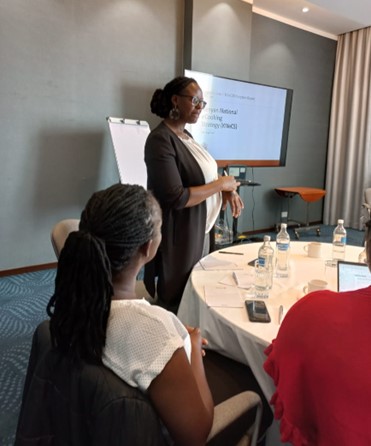Background
Kenya is currently generating more electricity than it consumes and is expanding and strengthening the national grid progressively, which has resulted in increasing electricity access from 29% to 75% in the last five years. Over 80% of the Kenyan households still rely on biomass fuels for cooking, yet the Household Cooking Sector Study reported that only 3% own an electric cooking appliance. As a result, Kenya is now pursuing an integrated energy plan, which can enable the rapid progress in electrification to drive forward the transition away from biomass cooking. This could make a substantial contribution towards the goal of universal access to clean cooking by 2028 as elaborated in the Kenya Clean Cooking Compact, 2021, thereby accelerating the achievement of Sustainable Development Goal 7 (SDG7).
To this end, the Ministry of Energy & Petroleum (MoEP) in collaboration with Modern Energy Cooking Services (MECS), United Kingdom Partnering for Accelerated Climate Transitions (UK PACT), Agence Française de Développement (AFD), GIZ Energising Development (EnDev) Programme and Climate Compatible Growth (CCG) has sought the services of Nuvoni Centre for Innovation Research to develop a national strategy for eCooking Strategy (KNeCS) and capacity building of MoE on this emerging sector.
The National eCooking Study and Strategy will feed into the overarching National Clean Cooking Strategy 2022-2028. The study will focus on how energy-efficient eCooking technologies can be scaled-up in Kenya noting the benefits to workload and decrease in health risks associated with the use of solid fuels for cooking, improving environmental sustainability, and stimulating growth in demand for electricity.


Objectives of KNeCS
- The eCooking baseline study aims to assess the status quo for eCooking in Kenya and determine the contribution that eCooking could make towards the goal of universal access to clean cooking by 2028.
- The eCooking strategy will coordinate with the overarching clean cooking strategy to select the most appropriate scenario from the baseline study and develop a roadmap for how to achieve it.
Coordination
The KNeCS is overseen by a Technical Working Group (TWG) comprised of representatives from different Ministries, national institutions, sectoral associations, and development partners. The coordination committee is co-chaired by the MoEP and MECS.
Publication series
Blog Series
Partners
